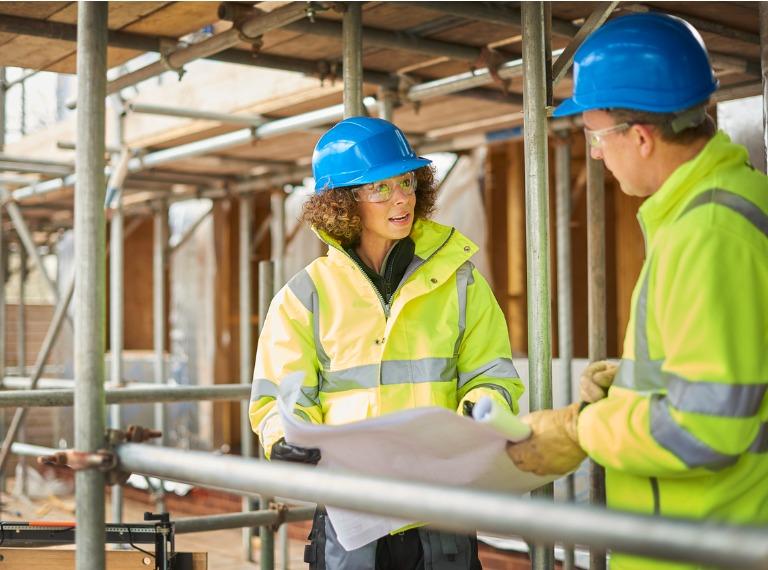The property and construction market has continued to flourish this year, facilities management professionals are navigating new ways of working, and construction technology is on the rise.
As a result of the sector’s changing landscape, professionals across all sectors are highly sought after, but the talent shortage is making it hard for companies to meet deadlines and keep up with demand for new developments.
The ageing workforce
The ageing workforce issue within the property and construction sector is well known. Those entering retirement are not being replaced by younger workers at a fast enough rate, leaving many organisations with large skills gaps.
While this is seen among many industries, in a physically demanding sector such as construction, the impacts can often be greater. It’s vital that employers consider the needs of their staff and look at policies and procedures to ensure that all employees are given the support they need.
Managers should have regular conversations with staff to highlight any potential issues and engage with occupational health professionals as soon as any problems arise to prevent injuries or illnesses having a long-term impact.
Technology changing the face of the sector
The Covid-19 pandemic has changed the world of work. With more people working remotely or on a hybrid basis, the job of a facilities management professional has changed and with that comes new opportunities for those in the sector as well as for those looking to join.
There is much greater emphasis placed on collaboration, and in a hybrid world, this means office spaces need to be reimagined. In addition, climate change and the energy crisis mean businesses are looking at their workplace energy consumption and finding greener ways to operate. Some are using smart sensors, apps that map energy consumption to pinpoint where savings can be made, and digital visitor management apps that reduce paper.
The younger generations (millennials and Gen Z) are hesitant to work for companies that do not have climate-friendly policies, and many are tempted by opportunities to work in sustainability and green jobs.
In the construction sector, technology can support the delivery of projects, reduce costs, and boost efficiency. Some of the tech trends we are seeing in the industry are augmented reality (AR), drones, and building information modelling (BIM). Augmented reality makes it possible to present results before the work is complete, meaning errors can be identified sooner and more easily, reducing costly mistakes in building work. Drones are also another great way for companies to keep track of projects, spot errors, and monitor the progress of large-scale developments.
Modular and prefabricated construction is becoming more popular in the market, which reduces the environmental impact of developments by reducing the air, water, and noise pollution caused by construction projects.
Also known as ‘digital natives’, Gen Zs are more inclined to seek career opportunities where technology plays a key role, so the more companies invest in their technology, the greater chance they have in attracting new talent.
Economic challenges
As with most industries, the current economic climate is causing myriad problems for the property and construction sector. Companies are having to look at where cost savings can be made, and many are working with tighter budgets.
However, the increase in the cost of materials, coupled with professionals seeking higher pay, means businesses are having to carefully consider how they can continue to operate profitably while meeting deadlines and keeping staff happy.
Investment in public sector infrastructure has always been a key driver of output in times of economic downturn, and the social housing sector should continue to grow over the following year, creating more opportunities for those looking for new prospects.
Salaries and benefits
It is a highly competitive market and employers need to pay at least the market rate if they want to attract and retain talent this year. This is only going to become more important as the cost-of-living crisis forces professionals to seek out new opportunities for higher pay.
However, salary is not the be-all and end-all. Since the pandemic, jobseekers are expecting more from their employers – whether that’s flexible working to support a healthy work-life balance, annual pay reviews that are in line with inflation, or a company that can offer training and development opportunities - people want to work for great leaders who they can go on a journey with.
Engage with your staff and ensure you are offering a salary and benefits package that supports their needs.
For more information about salaries and benefits in the property and construction sector, download our 2025 salary guides now.





